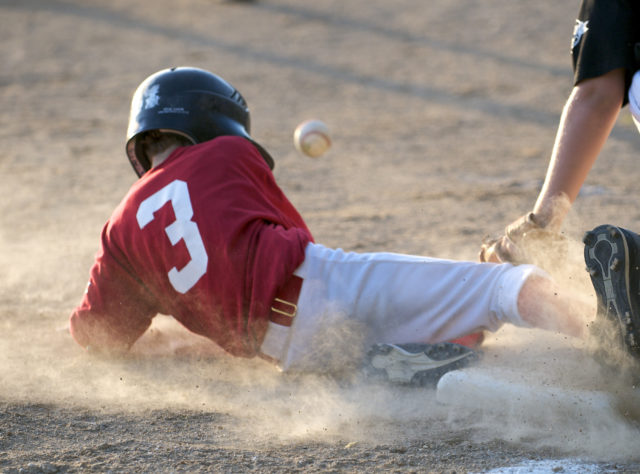
Concussions in young athletes are a serious concern. Here’s how to recognize the signs.
Sports-related concussions account for more than half of all emergency visits in children ages 8-13. As concern about concussions in youth sports grows, experts increasingly urge coaches, parents and athletes to learn how to recognize and respond to a concussion.
Concussions are caused by a direct or indirect blow to the head. They don’t require getting hit on the head. Bodily contact can also cause injury to the brain. When someone has a concussion, the brain gets bounced around in the skull, causing temporary disruption of normal brain functions.
“If you think your child has suffered a concussion during a sporting event, the most important first step is to immediately remove him/her from the game. The outcome of a single game, tournament, etc. is not worth the long-term damage that could occur from continuing to play. Many times kids are rushed back to play too soon and this can perpetuate the symptoms and even cause them to take much longer to recover. If you suspect concussion, bring him/her to see their physician as soon as possible. Once they have been diagnosed with a concussion, the number one treatment is rest…pure cognitive rest. The more rest your child can get in the first 48 hours after injury, the better they can recover in the long run. As always, a close follow up with their regular physician is important.”
The decisions made after someone sustains a possible head injury can make a difference in whether they fully recover. A child who has a concussion is 1½ times more likely to have another. If they have had 2 concussions, they have 3 times the risk of it happening again.
What to do if you think an athlete has a concussion:
-
- Check for possible signs of concussion (see list below).
- Remove the athlete from the game or practice. When in doubt, have them sit it out.
- Seek medical attention. Only a health care provider can determine if an athlete has a concussion and when it’s okay to return to play. A quick concussion test on the sidelines is not enough.
Signs of possible concussion include:
-
- Loss of consciousness
- Headache
- Blurry or double vision
- Nausea or vomiting
- Dizziness or balance problems
- Sensitivity to noise or light
- Difficulty concentrating or remembering new information
- Confusion
- Irritability or nervousness
- Moodiness or sadness
- Excessive sleepiness or sluggishness
- Difficulty falling or staying asleep
Some signs of concussion may appear right away, but others may not show up until hours or days after injury.
Copyright 2019 © Baldwin Publishing, Inc. All rights reserved.
Health eCooking® is a registered trademark of Baldwin Publishing, Inc. Cook eKitchen™ is a designated trademark of Baldwin Publishing, Inc. Any duplication or distribution of the information contained herein without the express approval of Baldwin Publishing, Inc. is strictly prohibited.
Date Last Reviewed: January 16, 2019
Editorial Review: Andrea Cohen, Editorial Director, Baldwin Publishing, Inc. Contact Editor
Medical Review: Perry Pitkow, MD
Learn more about Baldwin Publishing Inc. editorial policy, privacy policy and sponsorship policy.
No information provided by Baldwin Publishing, Inc. in any article is a substitute for medical advice or treatment for any medical condition. Baldwin Publishing, Inc. strongly suggests that you use this information in consultation with your doctor or other health professional. Use or viewing of any Baldwin Publishing, Inc. article signifies your understanding and agreement to the disclaimer and acceptance of these terms of use.